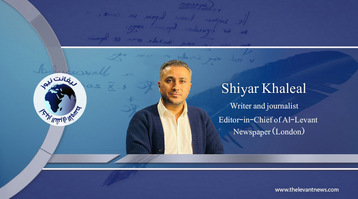-
Tibi or Bibi?

Ahmad Tibi has been busy for the last few days. In the aftermath of Israel’s March 2 general election the country’s best-known Palestinian politician has been mercilessly attacking Binyamin Netanyahu, who prematurely claimed that that he had won the latest round in an inconclusive series.
Tibi is a prominent member of the Joint List, a coalition of four Arab parties, which emerged as the third biggest bloc after Netanyahu’s Likud and the centrist Blue and White Party led by the former Israeli army chief of staff Benny Gantz. It now has a record 15 MPS in the 120-member Knesset. The Likud and Blue and White have 36 and 33 seats respectively.
Tibi took gleefully to social media to mock “Bibi” with the message that Israeli Arab voters had turned out en masse in the country’s third election in less than a year to ensure that he would - yet again - be unable to form a new right-wing government: “Round 1,10 Knesset seats. Round 2, 13 seats. Round 3, 15 seats. Do you really want round 4?,” he tweeted in Hebrew, adding the Arabic “tfadel” –“you are welcome!”
Netanyahu, facing charges for bribery, fraud, and breach of trust that could see him sent to prison, has been fighting back. Demonization of Israel’s Palestinian minority has been a constant theme of his 14 years in power. Now he is ratcheting it up.
In the election of 2015 he notoriously warned his supporters that Arabs “were coming out in droves” to cast their ballots. And this week he stated that Arab votes were simply not valid – “non-Zionist” as he put it. “With One Stroke of the Pen, Netanyahu Writes Off Half a Million Israelis,” was the headline of a comment piece in the liberal daily Haaretz.
Naftali Bennet, his defence minister and coalition partner, expressed that view even more bluntly: “An Israeli government that relies on the votes of the Joint Arab List is a clear and present danger to the citizens of Israel and IDF soldiers."
Israeli politicians and analysts - Jews and Arabs alike – agree that this is a landmark development. In the 72 years since 1948, Arab MP’s have never been part of any governing coalition, with one partial exception. Following the elections of 1992, the then Labour leader Yitzhak Rabin depended on the external support of Arab parties, provoking attacks from the right. That was part of the toxic political atmosphere that culminated in Rabin’s assassination by a Jewish extremist in 1995.
Over the last year three ugly elections have been marked by open hostility to the Joint List. “Bibi or Tibi,” went one Likud slogan – with clearly racist undertones. In advance of last September’s poll the Joint List decided to support Gantz as candidate for prime minister. Gantz, however, responded by vowing that it would not be part of any government he led.
“This is the Arab population’s highest level of voter participation since 1999 and our most significant parliamentary achievement ever,” declared Ayman Odeh, head of the Joint List. “This time, we received more Jewish votes than ever, and we have a dream that we will become the true alternative on the political map.” In all, some 20,000 Jews voted for Odeh, Tibi and their fellow candidates.
Odeh put it like this on Twitter: “Everyone who repeats Netanyahu’s lie that he won the election assumes that there are only 105 Knesset members and erases 1.8 million Israeli citizens.”
Apart from being targeted by Netanyahu and rebuffed by Gantz, other factors helped mobilise Arab voters. The most important of these was the 2018 Nation State Law, which defined Israel as the state of the Jewish people and effectively downgraded Arabs to second-class citizens, along with the Arabic language. Liberal Israeli Jews opposed that, arguing that it was a departure from the Declaration of Independence which talked about equal rights for all citizens.
Another factor was anger at Donald Trump’s “deal of the century,” which proposed stripping 250,000 Arabs living in northern Israel of their citizenship as part of a potential land swap between Israel and a truncated Palestinian state – albeit one without control over its borders, airspace or territorial waters.
According to one pundit, the Joint List should now insist that any coalition it joins must commit itself to accepting the Arab Peace Initiative of 2002 for resolving the conflict – a proposal to which Israel has never formally responded.
In the days that followed the latest election Netanyahu and supporters have signalled the urgent need to form a national unity government in response to the corona virus crisis or implement the Trump plan within the limited window of opportunity before next November’s US election. Another distinct possibility remains a fourth Israeli poll.
The shape of the next Israeli government, and of Netanyahu’s own future, remain in doubt. These are dangerous times, reminding many of the volatile mood in the run-up to Rabin’s assassination. But it is clear that Israel is facing a stark choice – between being a democracy for the Jewish majority only - or for all its citizens.
You May Also Like
Popular Posts
Caricature
Syrians' concerns now
- December 10, 2024
Syrians' concerns now #Syria
#Bashar_al-Assad
#Liberation_of_Syria
#Syrians
#Future_of_Syria
#Levant_News

opinion
Report
ads
Newsletter
Subscribe to our mailing list to get the new updates!





















